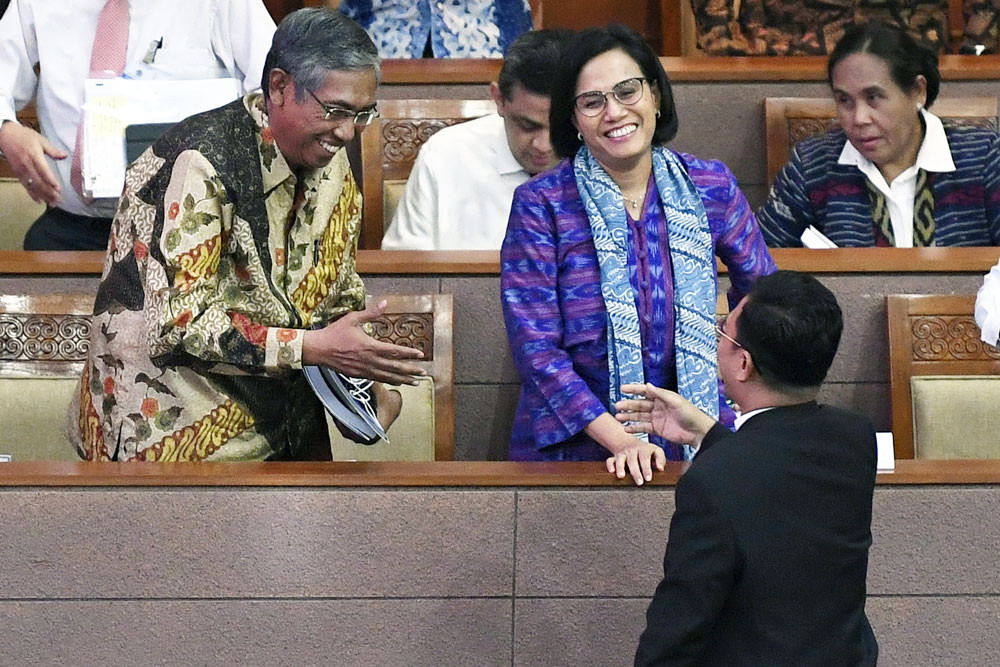Popular Reads
Top Results
Can't find what you're looking for?
View all search resultsPopular Reads
Top Results
Can't find what you're looking for?
View all search resultsFiscal management in 2020
Change text size
Gift Premium Articles
to Anyone
T
he macroeconomic framework and fiscal management guidelines for the 2020 fiscal year that Finance Minister Sri Mulyani Indrawati presented at the plenary session of the House of Representatives on Tuesday is by and large similar to those the government is already following.
The emphasis remains on macroeconomic stability by controlling inflation at below 4 percent to protect purchasing power, as private consumption would continue to be the main driver of growth. The business climate and licensing system would be further improved to invigorate investment as the second driver of growth while exports are to be bolstered as well.
The public sector would perform better where there is stability in macro and strategic policy and funding of existing policies, especially in facing global economic uncertainty and growth slowdowns.
Given slower global economic growth and uncertainty in the global economy because of the United States-China trade war and rising protectionist trends in many countries, the government projects economic growth of 5.3 to 5.6 percent, as against an estimated 5.2 percent this year. This growth is still respectable compared to the average 5 percent projected for the whole of Asia and 3.6 percent globally.
Sri Mulyani also reiterated the importance of maintaining prudent fiscal management, meaning that even though physical infrastructure development would continue to be the priority for public sector investment, private investors would be encouraged to provide the bulk of financing through public and private partnership schemes. Human resource development, notably through vocational skill training, is to be accelerated as well with much larger budget appropriations.
Government spending would not likely be expansive in view of persistently weak tax revenue collection of below 11 percent, which is considered the lowest among the governments of the investment grade category. Moreover, the government is to tighten new borrowing because debt servicing costs as a percentage of government revenue has exceeded 10 percent even though the government debt ratio against gross domestic product is below 30 percent, or way below the legally allowed maximum of 60 percent.
Tight fiscal discipline is key to supporting market confidence in Indonesia amid the volatile foreign exchange market because more than 40 percent of government debts are denominated in foreign currencies, thereby exposing the government to significant exchange rate risks.
Tuesday’s House plenary session was the second comprehensive briefing by the government on the direction of fiscal management next year that is to start in January. Informing the market early on the direction of fiscal management would generate strong market confidence in the outlook of the economy because predictability is quite important for efficient and effective implementation of policies and programs.
Such transparency is necessary because a budget system is basically a communication system, conveying signals about behavior, prices, priorities, intentions and commitments. The next important factor that would greatly influence the market perception of the economic outlook is the quality of the economic team that President Joko “Jokowi” Widodo is to appoint to assist him during his second term starting in October.










